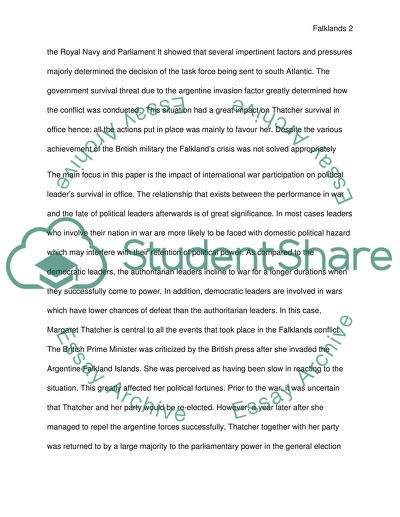Cite this document
(“Was the Falklands a vital factor in Thatcher's political survival Essay”, n.d.)
Retrieved from https://studentshare.org/environmental-studies/1420881-was-the-falklands-a-vital-factor-in-thatcher-s
Retrieved from https://studentshare.org/environmental-studies/1420881-was-the-falklands-a-vital-factor-in-thatcher-s
(Was the Falklands a Vital Factor in Thatcher'S Political Survival Essay)
https://studentshare.org/environmental-studies/1420881-was-the-falklands-a-vital-factor-in-thatcher-s.
https://studentshare.org/environmental-studies/1420881-was-the-falklands-a-vital-factor-in-thatcher-s.
“Was the Falklands a Vital Factor in Thatcher'S Political Survival Essay”, n.d. https://studentshare.org/environmental-studies/1420881-was-the-falklands-a-vital-factor-in-thatcher-s.


